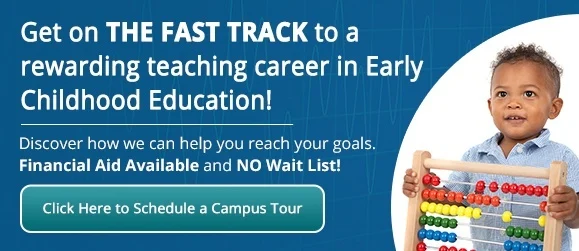Tips for Becoming a Successful Early Childhood Educator
Posted On February 6,2023
Some early childhood educators knew they wanted to teach early in life, while others discovered their passion later in life after exploring other avenues. While each has its own journey, becoming a successful educator depends on specific qualities like patience, communication, and a love for working with children. Effective preschool teachers know how to incorporate uniqueness into their lesson plans and classroom management skills. If you’re wondering how to become a preschool teacher, here are some tips to ensure your success:

Deliver Thriving Lessons
It’s essential to keep the novelty factor alive by creating and delivering classroom content and lessons that are interesting and meaningful. By helping children connect what you teach with what they know, they will quickly understand the lessons, develop interest, and look forward to coming to school and participating.
Encourage Questions
Encourage the children in your classroom to ask questions. Questions give you new insights that help you understand the child, provide the best support, and meet their learning needs. The most effective way to ask questions is to ask open-ended ones that encourage answers beyond “yes” or “no.” Open-ended questions promote creativity and collaboration, especially in young children.
Diversify Your Resources
Diversify your classroom resources by ensuring your young learners have access to books and other educational materials that include positive, non-stereotypical depictions of people with various backgrounds, abilities, and family structures. Providing a vast array of diverse resources, affirms a sense of belonging to all your students.
Learn More about Our Early Childhood Education ProgramExpand on Individual Strengths
Every young student brings their own talents, passions, strengths, and personality to the classroom. Children greatly benefit when their teachers recognize those unique gifts and use them to determine how to curate each child’s contributions to help the class and maximize learning for everyone.
Show Enthusiasm for Interests
Showing enthusiasm for your students’ interests will go a long way in the classroom. Children feel validated when you show genuine interest in what brings them joy. Children’s interests are an excellent resource for motivation and learning.
Facilitate Family Participation
Family collaboration is critical to supporting the success of all students, but parents and caregivers may not be able to participate in the same way. To help every family get involved in their child’s education, offer them flexible options for collaborating virtually and outside school hours. There is no right or wrong way for families to collaborate, so flexibility is vital.
Model Respectful Behavior
Creating a positive, thriving classroom environment begins with early childhood educators who model their respective behaviors in front of their students. Children learn and mimic behaviors by watching and listening to others. Teachers are the primary role models who influence their students’ attitudes, values, and behaviors. A positive role model serves as an example, inspiring children to live significant lives. Teachers are a consistent presence in a child’s life, so you have an opportunity to make a tremendous impact.
Are You Ready to Succeed in the Classroom?
If you’re still wondering how to become a preschool teacher, the first step is enrolling in an early childhood education degree program. As a student in the Early Childhood Education (ECE) program at Athena Career Academy, you will learn how to educate, encourage, use positive guidance, inspire, and use Developmentally Appropriate Practice Methods. You will study the developmental levels of birth through age 8, so you’ll be ready to launch an exciting and rewarding career in early childhood education. To learn more about the ECE program, contact Athena Career Academy today.
